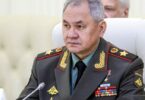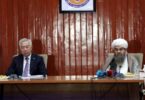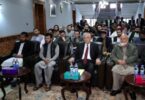KABUL (Khaama Press): Qatari Minister of Foreign Affairs Sheikh Mohammed bin Abdulrahman urged Western countries to ramp up engagement with the Islamic Emirate government, according to sources, warning failure to do so would risk Afghanistan falling into a deeper chaos.
The remarks came at a time the world leaders, including international community, denied honoring a formal recognition to the Taliban rule, calling inclusive government a stepping stone towards such a consideration. Sheikh Abdulrahman, who is named as Qatar’s Deputy Prime Minister, made the remarks to the Financial Times, warning an economic downfall and rise of “extremism”.
“We will see maybe a rise of extremism. We will start to see an economic crisis, which has already started, and this will just drive the people to more radicalization and conflict,” the Qatar foreign minister said as quoted by the Financial Times. “This is what we are trying to avoid. Welcoming the recent remarks by the Qatari diplomat, the Taliban government leveraged people basic rights and mutual interest as it call for world leaders to give formal recognition to its leadership in Afghanistan.
“We want foreign countries to take practical steps that are in the interest of all and to respect the basic right of the government and people of Afghanistan,” said Inamullah Samangani, deputy spokesman for the Islamic Emirate. Meanwhile, Analysts believe that economic problems will affect overall stability of the country, paving the way for terrorist activities – a widespread concern the Taliban leadership has repeatedly denied of the possibilities.
“The economic crisis will undermine the political and military pillars and will pave the ground for terrorist activities and will finally cause the collapse of Afghanistan,” said Mehdi Afzali, an international relations analyst, as TOLOnew quoted. “The world will use political power to try to pursue political interests in Afghanistan and this could harm both sides,” said Javid Sandel, a political analyst.
Since the takeover in August 15, 2021, the so-called Islamic Emirate government failed to gain formal recognition, as international community has repeatedly said forming an inclusive government could potentially honor such a credit to the Taliban leadership. Last week, Russia said it wants to work towards “full diplomatic recognition” of the Taliban leadership under a condition, where the Islamic Emirate will establish an inclusive government in Afghanistan.
“We want to work towards the full diplomatic recognition of the new authorities in Afghanistan, under the understanding that they will keep their promise and form an inclusive government…,” said Sergei Viktorovich Lavrov, Minister of Foreign Affairs of the Russian Federation. But no county has so far considered the Taliban governance as that of the formal one, though at least five countries have accredited Taliban diplomat within limited ties to ease ongoing hurdles the Afghan citizens are facing outside the country.
“We’re working to establish an inclusive government that represents all the people of Afghanistan,” promised Taliban leader Mullah Abdul Ghani Baradar when he recently arrived in Kabul to start talks aimed at forming a leadership to move the movement from guns to government, as BBC quoted. “We would like to live peacefully,” vowed Taliban spokesperson Zabihullah Mujahid at the first press conference in the capital after the Taliban suddenly swept into power on 15 August. “We don’t want any internal enemies and any external enemies.”
However, Taliban actions seem to speak louder than words as Afghan people, including foreign governments, hold the Islamic Emirate responsible for growing insecurities and ever-increasing restrictions against women rights and freedom of speech in Afghanistan.






